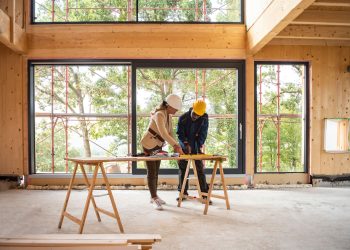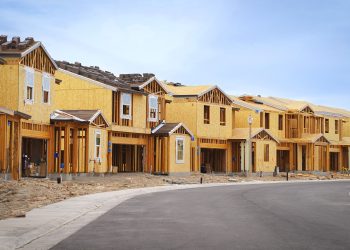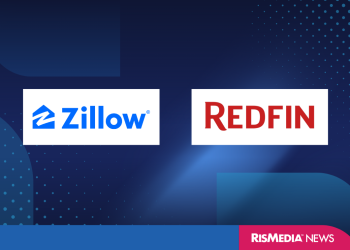Over the last few months, the luxury real estate market has experienced the return of a more normal pace of doing business for those looking to buy and sell their homes. Initial trends also indicate a moderation in the levels of sales and price increases, according to the latest report from The Institute for Luxury Home Marketing.
However, while the frenzy may have settled, it’s important to note that prices are still trending upwards. This is because an inventory shortage remains the dominating factor affecting current market dynamics.
During the previous 18 months, an extraordinary demand from buyers prioritizing single-family homes with large square footage, extra rooms, outdoor space and privacy above all else, was the dominant trend.
In the last six months, demand for attached properties—especially condos which stalled in 2020—started to see an uptick, as buyers realized that greater inventory levels and more reasonable pricing had opened the door of opportunity.
As we move into the Fall season, we review both new opportunities and trends that homeowners and investors should consider during their property search.
A Return to Urban Living
An increasing number of buyers are starting to return to larger metropolitan cities for multiple reasons, whether it’s simply missing the lifestyle they had before circumstances changed, to looking for a potential investment opportunity.
These buyers are recognizing that while city prices did not drop significantly, they did soften due to high inventory levels. Similarly, many residents are seeing the chance to buy urban property at comparatively discounted prices against the skyrocketing prices found in their suburban communities.
Still, this door may close soon, as also in the mix are foreign investors (now that travel restrictions are easing) and first-time buyers who are heading to urban markets looking for the opportunity to purchase a larger property at more affordable prices.
Experts are predicting that city markets may well see stronger returns on investment than their suburban counterparts, which are already reporting a slowdown in the acceleration of their price increases.
Emerging City Neighborhoods
While cities are starting to experience an influx of new and returning buyers, some of the best deals may be found in the emerging neighborhoods. Prior to the pandemic, many of these inner, mid-city communities and industrial areas had been on trend for gentrification.
Cities from Vancouver and Toronto in Canada to Atlanta, Austin, Chicago and San Francisco in the U.S. saw their emerging neighborhoods stall in 2020, as people chose to purchase away from the more crowded metropolitan communities.
Today, emerging neighborhoods not only afford buyers better values, but have the potential to create greater equity returns. These are ideal for buyers ready to invest in a property for the longer term; understanding that they are buying early and will need to wait for the neighborhood to evolve and mature.
Opportunity in Compromise
In highly popular luxury markets with little to no inventory, compromise might be the only option. However, it could ultimately be the right one. Opting to purchase a condo or fixer-upper rather than a turnkey property may provide buyers other opportunities worth considering.
Firstly, less popular properties come without the added pressure of feeling desperate to purchase sight unseen or enter a bidding war. Secondly, the longer a property is on the market the more likely the seller will be open to negotiation.
But more importantly, even for highly affluent buyers, getting a foothold in their preferred market despite the property not being ideal, allows them to keep up with price appreciation as well as giving them the advantage of purchasing the property they really want, once it comes on the market.
Home Field Advantage
Two of the pandemic’s effects on the luxury real estate market have been the purchase of properties sight unseen and multiple-offer situations. Unfortunately, this has created a negative trend in which desperate buyers are often feeling the need to make extraordinary offers in order to secure the property—only to terminate the sale when the house proves not to meet their requirements.
While there are usually back-up offers, this still impacts the seller’s timeline and budget, especially if they are already in negotiations for a new property that may be proving equally popular.
This can give a local buyer the home field advantage, especially if there is a multiple-offer situation. Sellers are recognizing that local residents not only know the surrounding community and where they want to live, but given their proximity will have had the time to view the property prior to making an offer.
A buyer who has seen the property in person and who is able to move quickly will almost always be more appealing to a seller.
New Priorities
In 2020 and early 2021, the priority was to purchase larger homes offering more space, privacy and safety—and the value of fulfilling these requirements often superseded the cost factor.
However, as we enter the latter part of 2021, and mainly as a result of the historic rise in property values over the last 12 months, many affluent are now starting to reprioritise their purchases with a keen eye on market stability and potential returns.
Which trends will see better investment return—larger estate-sized homes, properties with views, or those located on expansive land or closer to amenities—are questions being asked of our luxury real estate professionals.
The answer may lie in reviewing the sales data for the last six months, which reveals that luxury mid-sized homes ranging from 5,000 to 10,000 sq ft are proving to be in the greatest demand.
Although people want extra space, they do not want to be overwhelmed. Equally, land and privacy are still important, but as things return to normal the shift back to living closer to amenities and locations closer to work may become the main priority for some once more.
Time to Diversify
On the opposite side, the opportunity to work from home, or anywhere, will still play a significant part in the choices of the wealthy. Now that remote working is mainstream, there is an increasing focus on investing in real estate that aligns with people’s lifestyle choices.
Vacation and second-home properties are expected to see a continued increase in popularity, especially for those who need escape options from their primary property. People are continuing to seek diversity in their lifestyle and owning multiple properties, whether they are in the city, mountains or beach locations, is an important facet in meeting that requirement.
Demand is predicted to drive more development in resort and vacation markets, so properties in well-established second markets will only see an upward pressure on their values.
Growth of Cryptocurrency Buying
One of the hottest topics currently is the immense wealth being generated in the cryptocurrency market—despite its ups and downs.
As a result, there has been an increase in the number of sellers and developers who are making their properties available to crypto-buyers. For holders of cryptocurrency, looking to diversify their portfolio, real estate’s stability and long-term growth potential is proving to be an asset of choice.
The volatility of cryptocurrency has long been its biggest challenge for those looking to divest funds out of this digital currency. Equally how sales are handled using cryptocurrency have not been standardized in the real estate industry yet, so working closely with a broker and an attorney in the negotiation and preparation of the contract is of the utmost importance.
Ultimately as different options emerge, including borrowing against the value of crypto currency and the ability to do direct trades within this digital world, we can be assured that crypto-buyers who have generated immense wealth are going to have a major influence on the luxury real estate market.
Read the full report here.
For more information, please visit www.luxuryhomemarketing.com.











